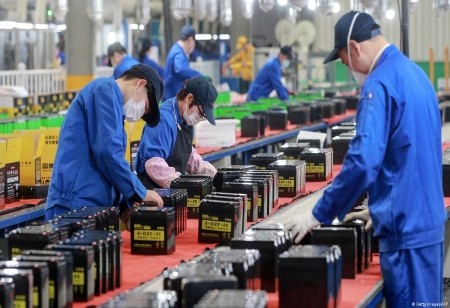
Janil Puthucheary, Senior Minister of State for Communications and Information, told Parliament on Tuesday that Singapore will see three new applications of 5G technology this year, including two firsts in electric vehicle manufacturing and river cleaning (Feb 28).
Dr Puthucheary stated that measurements by the Infocomm Media Development Authority (IMDA) confirmed that Singapore's first two 5G standalone networks had achieved 95% nationwide outdoor coverage, well ahead of the 2025 target.
"With the rollout moving ahead of schedule, our focus is now on assisting the industry in leveraging 5G's capabilities to improve their operations and service offerings," he said.
In one project, more than a hundred 5G-enabled robots are being used to transport materials to vehicle manufacturing cells on the factory floor of the Hyundai Motor Group Innovation Centre in Singapore.
The automated control system and the robots will be able to exchange data in real time thanks to 5G technology. According to Dr Puthucheary, it will reduce labor-intensive activity, improve worker safety, and allow them to take on higher-value roles.
Hyundai plans to hire robotics engineers, data analysts, and process engineers for the manufacturing facility, he says.
The partnership between the Infocomm Media Development Authority (IMDA) and Hyundai was described as "the world's first 5G-enabled built-to-order electric vehicle factory" by the Ministry of Communications and Information (MCI).
The more agile manufacturing process will enable Hyundai to develop "Singapore's very own built-to-order electric vehicles," according to the company. More information will be released when the centre opens later this year.
In another new project, IMDA and Weston Robot will collaborate to use 5G-enabled electric unmanned surface vessels for river cleaning and inspection.
Currently, river cleaning is done manually using gasoline-powered boats. Each boat emits up to 20 tonnes of CO2 per year and costs between S$6,000 and S$12,000 to maintain.
The electric vessels can operate autonomously and use video analytics to detect and remove trash that is not within the pre-programmed paths. They will also reduce carbon emissions by 80% when compared to gasoline-powered boats.
According to MCI, the electric unmanned vessels will improve workplace safety and reduce the need for employees to work long hours in the sun. Multiple electric vessels will be able to be piloted by a single operator at a command centre.
MCI described the project as a "first" in the Association of Southeast Asian Nations (ASEAN), adding that it will seek to advance the use of electric vessels and video analytics technology for garbage detection in Singapore and the region.
IMDA will collaborate with Mind PointEye on a third project to develop 5G artificial intelligence-enabled sentry robots and patrolling vehicles for security surveillance. Security guards will be able to remotely monitor locations via video analytics, which will provide real-time push notifications of threats.
In 2021, IMDA will launch the S$30 million 5G Innovation Programme to accelerate the adoption and commercialization of enterprise 5G solutions. The programme has funded seven 5G projects, including the most recent three.

